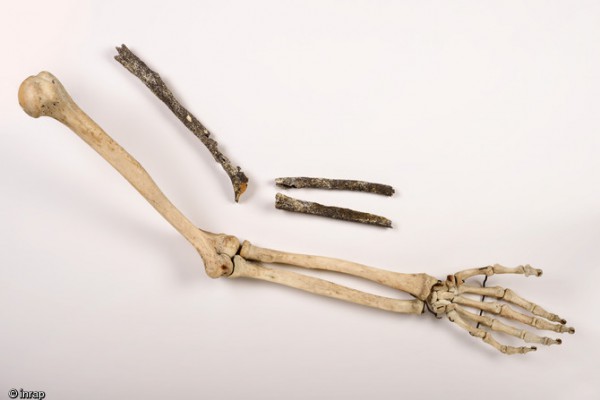
The French National Institute of Preventive Archaeological Research (INRAP) has announced the rare discovery of the remains of a pre-Neanderthal on the prehistoric site of Tourville-la-Riviere, Normandy, Art Daily has reported. The discovery was made by an international team of archaeologists from France, Spain, Australia, and the US.
The human fossils, which were dated to the Middle Pleistocene era (781,000 – 128,000 BC), are extremely scarce in northwestern Europe. Since the 19th century these rare examples of early humans have been unearthed on only 10 sites in Germany and Great Britain, and on one site in Northern France. The discovery is being hailed as a major archaeological find which will significantly enhance the experts’s understanding of early European settlers from the Mid-Pleistocene period.
Using electron spin resonance techniques to analyze the bones, archaeologists have determined that the remains belonged to a teenager or young adult. The individual had an unusual bone-ridge, which indicated that his posterior deltoid muscle was attached to his humerus. This phenomenon, which resulted most likely from repetitive throwing movements, has also been observed in modern athletes, such as baseball players.
This discovery provides important information about the behavior of pre-Neanderthals from the Middle Paleolithic era, especially in conjunction with the sophisticated blades and flakes previously found in the surrounding region.